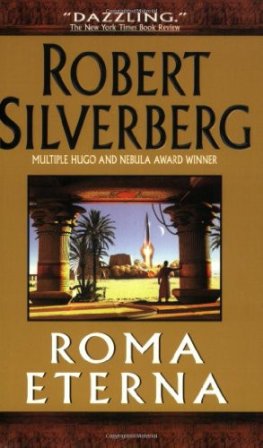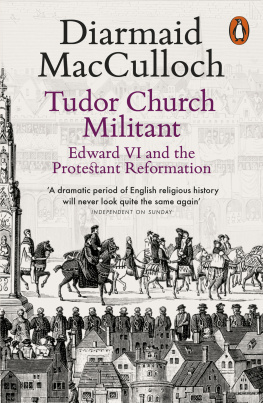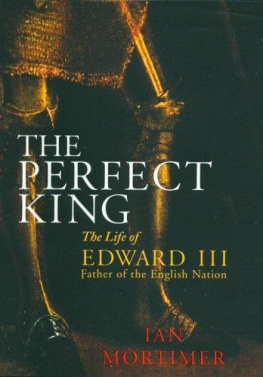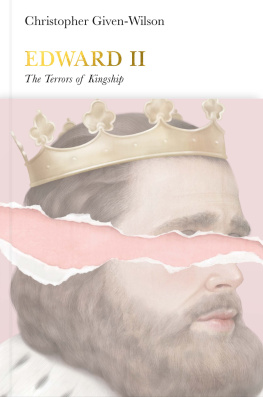PREFACE.
The volume entitled The Greatest of the Plantagenets, was correctly described in its titlepage, as an Historical Sketch. Nothing more than this was contemplated by the writer. The compilation was made among the manuscripts of the British Museum, in the leisure mornings of one spring and summer; and so soon as a fair copy had been taken, it was handed to the printer. The work was regarded as little else than a contribution towards an accurate review of what is both the most interesting and the most neglected period of our English history.
Its reception exceeded by far the authors anticipations. Very naturallyit might be said, quite inevitablymany of those who admitted the general truth of the narrative, were ready to charge the writer with partisanship, and with taking a onesided vie of the question. It is not easy to see how this could have been avoided. A great literary authority has said, that the first requisite for a good biography is, that the writer should be possessed with an honest enthusiasm for his subject. And in the present case his chief object was to protest against what he deemed to be injustice. It was his sincere belief, that for about a century past an erroneous estimate of this great kings character had been commonly presented to the English people. He endeavoured to show that this had been the case; to explain the causes, and to lead mens minds to what he deemed to be the truth. Such a task could hardly be performed without giving large opportunity to an objector to exclaim, You write in a partisan spirit.
When a new view of any passage in history is presented, many fair and honourable men, while they yield to the force of evidence, cannot help feeling some reluctancesome dislike to the sudden change of belief which is asked of them. Such men will often be found to object to the manner in which their old opinion has been assailed, even while they admit that that opinion was erroneous, and can no longer be maintained.
So, in this case, even those who advanced this charge of partisanship were generally ready to concede, that an altered view of Edwards character had been not only propounded, but in a great measure established. Thus the Dean of Chichester, Dr. Hook, while he differs widely from some of the authors conclusions, admits that his argument is always worthy of attention, and describes the volume as one in which everything that can be advanced in favour of Edward is powerfully stated.
The success, then, of the authors attempt to rectify a prevalent error, has been clear and indisputable. All that he proposed to do has been donethe estimate of this great kings character which prevailed a dozen years ago, has been considerably elevatedthe justice which the writer claimed for him is now almost universally conceded.
But a desire is expressed by most of these criticsand it is a natural and laudable desirethat, as a result of the whole, a history, in the ordinary sense, of this great sovereign, and of the remarkable period in which he lived, might be given to the British public. The writer has entirely sympathized with this desire, and he has waited several years in earnest expectation of the appearance of some such work. Nothing of the kind, however, has yet been given to the world; nor is there any announcement of such a purpose. It seems to him, therefore, that it is in some sort his duty to review his former work; to consider how far it is justly chargeable with partisanship, and to reduce it, so far as he is able, to the proper form and proportions of a permanent history.
He feels the more impelled to attempt this, from an increasing conviction that not the sovereign only, but the time in which he lived and reigned, alike present to the mind of the dispassionate student, a subject meriting and richly repaying a careful examination. The chief features of the period in which this prince was born, and in which he lived, are more remarkable than even that union of great qualities by which he himself was distinguished.
This factthe unusual concurrence of many symptoms of advance and of excellence at that periodhas already been noticed by more than one writer. Lord Macaulay said: It was during the thirteenth century that the great English people was formed. Then first appeared with distinctness that Constitution which has ever since preserved its identity; then it was that the House of Commons, the archetype of all the representative assemblies which now meet, held its first sittings; then it was that the Common Law rose to the dignity of a science; then, that our most ancient colleges and halls were founded; and then was formed a language, in force, in richness, and in aptitude inferior to the tongue of Greece alone. Another writer adds, that it was this age of all ages, to which every Englishman ought to look back with the deepest reverence. In this thirteenth century our Constitution, our laws, and our language, all assumed a form which left nothing for future ages to do, but to improve the detail.
This language is strong, and yet it does not fully describe the fact. The union of solid and real advance with more ornamental characteristics is very remarkable. It is true, as the writers whom we have just cited observe, that this thirteenth centurythe lifetime of Edward the Firstsaw the rise into existence of the English people, of the English language, and of the English constitution; but there were also several other appearances which were stranger than these. The realm had been, for many years, almost destitute of a settled government; it had suffered from something nearly approaching to anarchy. The Norman dukes who domineered over it only vouchsafed to their province of England an occasional visit; often manifesting very little care for it. Richard I., out of a reign of nine years, spent only a few months in this island. His successor was the worst king that England ever saw, and did his utmost to plunge the realm into ruin and absolute confusion.
It fills us, therefore, with wonder, to observe that so soon as these two pernicious rulers had departed, and the land was left in the hands of a weak and incompetent, but wellmeaning youth, symptoms of revival of all kinds became perceptible. Not only did the English people and the English language come to light in this realm, but mind, and intellect, and taste all uprose together. It is curious, says Lord Campbell, that in this turbulent reign (of Henry III.) there should have been given to the world the best treatise upon law of which England could boast, until the appearance of Blackstones Commentaries. For comprehensiveness, for lucid arrangement, for logical precision, this author, Henry de Bracton, was unrivalled for many ages. Nor did this great lawyer stand alone. The same period gave us Roger Bacon, and, with him, Antony Beck and Chancellor Burnel, two of the greatest statesmen that England has ever known.
In the fine arts, also, England, though not yet rid of tumult and civil war, made equal or still greater advances. Henry really valued the arts; his wife was a cultivator and a patroness of poetry, and he himself resolved to raise, at Westminster, a new and splendid shrine for the remains of the last of the Saxon kings; ornamenting it, also, with pictures of great Saxon achievements. This royal taste for architecture was in accordance with the popular feeling. It was in the latter half of this century that Westminster Abbey, the old St. Pauls, the Temple church, and the cathedrals of Salisbury and Norwich were built, while during the same period, the churches of Lincoln, Ely, Ripon, Exeter, and Wells, all received important enlargement. Nor was Edward himself, though a soldier and a statesman, at all indifferent to these matters. He raised in Westminster Abbey two monuments to his father and his consort, of which an eminent critic of our own day says: Few figures can surpass, in simplicity and beauty, the effigy of queen Eleanor, and those on the crosses erected to her memory are almost equally fine.












